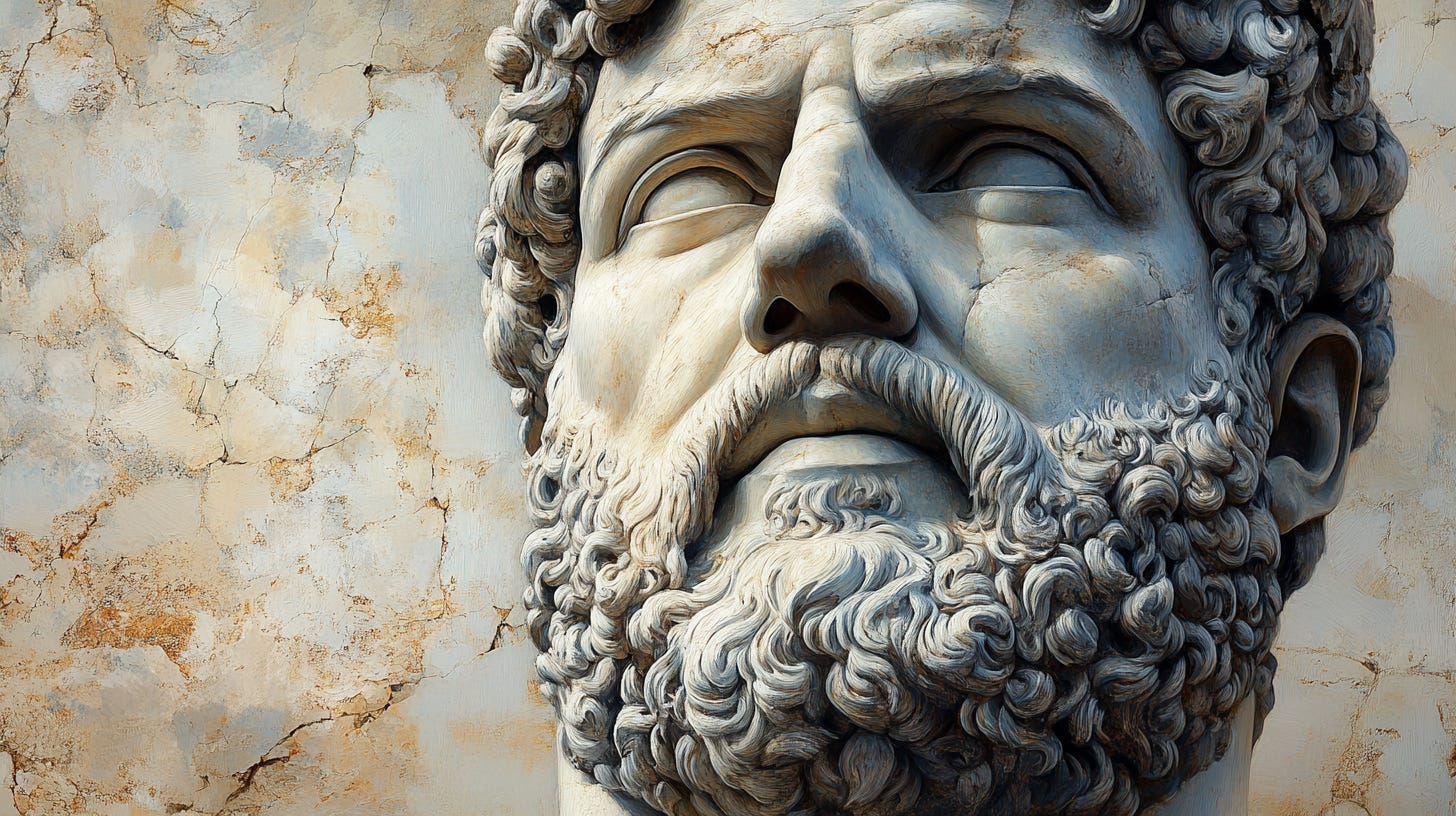Mental Toughness vs. Emotional Intelligence
Reflection on the pros and cons of old school vs. new school resilience.
I had a great conversation with my friend Kyle about the old thinking of mental toughness versus the new way of thinking with emotional intelligence. His insights made me realize we don't have to choose between them.
This is a guest post by Kyle Shepard from Resilient Mental State
Modern Dilemma
“Suck it up.”
“Don’t show emotion.”
“No pain.”
“Keep going no matter what.”
The mantras of previous generations still linger today.
Daily hardship was commonplace for everyone, regardless of status, in the 1800s. World wars, economic turmoil, and threats of nuclear destruction comprised the majority of the 1900s. Societal pressures to produce were constant. Threat of annihilation was imminent. Do your part for the tribe or become an outcast.
It’s no wonder that old school mental toughness focused on external action rather than contemplation.
Urgency was essential.
Feelings were a liability.
Cultural acknowledgment of emotional intelligence didn’t emerge until the 1950s when humanistic psychology was created. Abraham Maslow and Carl Rogers began emphasizing emotional awareness in personal development creating a shift in understanding of resilience.
Sustainable grit became less about emotional suppression and more about regulation. Awareness, understanding, and management of natural instincts presented an opportunity for self-actualization and optimized living.
Like any cultural shift, the pendulum often swings beyond progress into a new problem space.
The difference between emotions (i.e. natural states) and feelings (i.e. thoughts about emotions) began to get skewed. Cultural emphasis on emotional safety promoted a distorted reality.
“Don’t do anything if it makes you or anyone else feel bad.”
“Censor your opinions if divergent.”
“Avoid discomfort.”
“Stress is dangerous.”
Limitations of the pendulum shift were revealed. One’s feelings developed external expectations. Psychological safety became culturally supported. Comfort was the new goal.
Previous generations began calling the kids they raised snowflakes while the new generations called the boomers cold-hearted and unstable.
Ironically, both generations are prone to compromised mental health as they suffer from the same problem - dysregulation.
Misapplication
Under or over-regulation of emotions produce the same consequence - inner chaos. Prolonged emotional suppression vs. expression is physiologically detrimental to the mind and body. Outbursts, fragility, negative thinking patterns, resentment, detrimental coping strategies, burnout, anxiety, and depression are some of the ramifications of emotional dysregulation.
Your perception is your reality. Changing your perception can change your reality. View your thoughts differently and your environment perceptually changes.
One’s perception, however, is no one else’s reality. The environment will never bend due to one’s feelings. No one can protect you from your own emotions. Hold on to perceptions that aren’t serving you and your reality is going to suffer.
“I suffer from depression.”
“My anxiety.”
Recognizing that you’re in a bad place is important as intervention isn’t possible without awareness. There’s nothing wrong with saying, “I’m feeling depressed or anxious.” When you start making these symptoms your identity, however, a self-fulfilling prophecy is created.
Language matters. Self-talk and the story you tell is the perception that influences your reality.
Stereotypically mentally tough people don’t acknowledge the emotions while the new age stereotypes make them their identity. Both prevent thriving in the modern civilized world.
Every domain in one’s life can be negatively impacted by misapplication of mental toughness or emotional intelligence. When consciously and contextually applied, however, every life domain can be enhanced.
Modern Resilience
Resilience is the ability to effectively manage and eventually overcome stress.
Mental toughness and emotional intelligence are both crucial components for the skill that is resilience.
Mental toughness provides a resilient foundation. The ability to endure all forms of hardship is a consequence of both physical preparation and decided mindset. Nothing can break an iron will.
Add in knowledge on natural emotions that can be understood and leveraged to heighten your resolve. Understanding the difference between emotions and feelings can be empowering because it demonstrates that feelings are within our control. Learn to effectively manage your feelings to master emotional regulation.
Emotions are sensations in the body that are automatically generated in response to experience. The basic emotions are anger, disgust, fear, happiness, sadness, and surprise. None are inherently bad or good as the physiologic processes they cause can be beneficial circumstantially. Feelings are our thoughts about our emotions. They filter our experience of emotion creating the positive or negative perception.
It is also important to note that all the knowledge in the world won’t serve you without application. Therapy, medication, and countless resources won’t move the needle unless a person applies productive principles to their own life.
Wisdom is application of knowledge. Emotional intelligence requires individual intervention, effort, and continued practice.
Leverage the benefits of both mental toughness and emotional intelligence for optimized resilience in all domains.
Instincts are trainable - Intentionally training a resilient mindset through deliberate pursuit of beneficial hardship trains instinctual toughness.
Emotions are natural - Awareness, understanding, and regulation in order to return to a rational state is emotional resilience.
Make the subconscious conscious through self-reflection. Subsequently optimize subconscious instincts through conscious training.
Summary
In high pressure situations, suck it up and get after it:
Compartmentalize your emotions
Lean on your training
Default action
In response to all other stressors, emotional intelligence has many benefits:
Identify your state
Question assumptions
Manage and recover from the stress response
Return to rationality before execution
Leverage both concepts for optimized living:
Productive rumination with instinctual toughness
Context dependent application of toughness vs. contemplation
Self-awareness and reflection are imperative. Maintain your strengths while building upon your weaknesses.
Find the unique opportunities in your life to thrive in any environment.
Calm, despite chaos, is a skill that can be trained consciously and subconsciously.
Resilience is comprised of both mental toughness and emotional intelligence.










